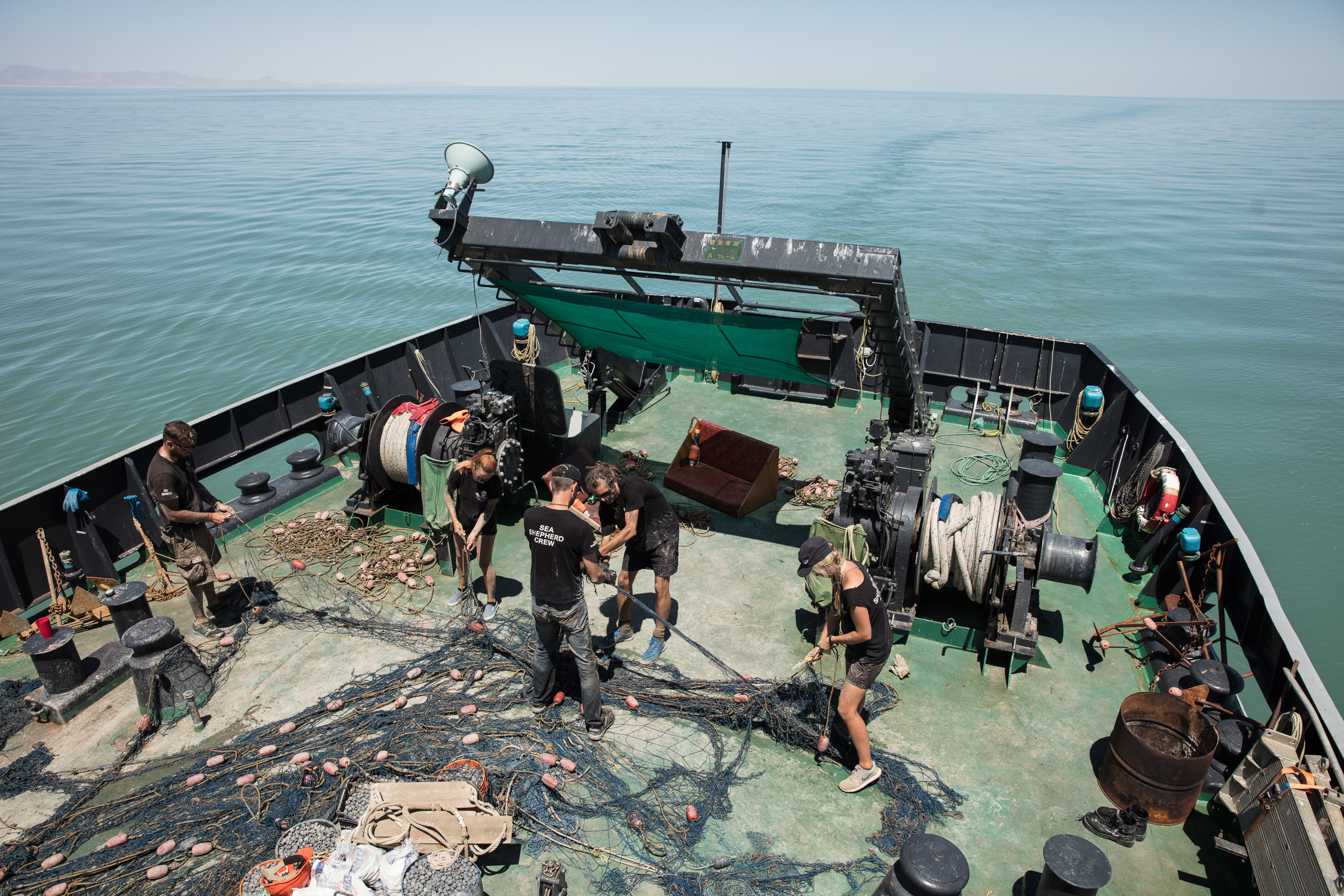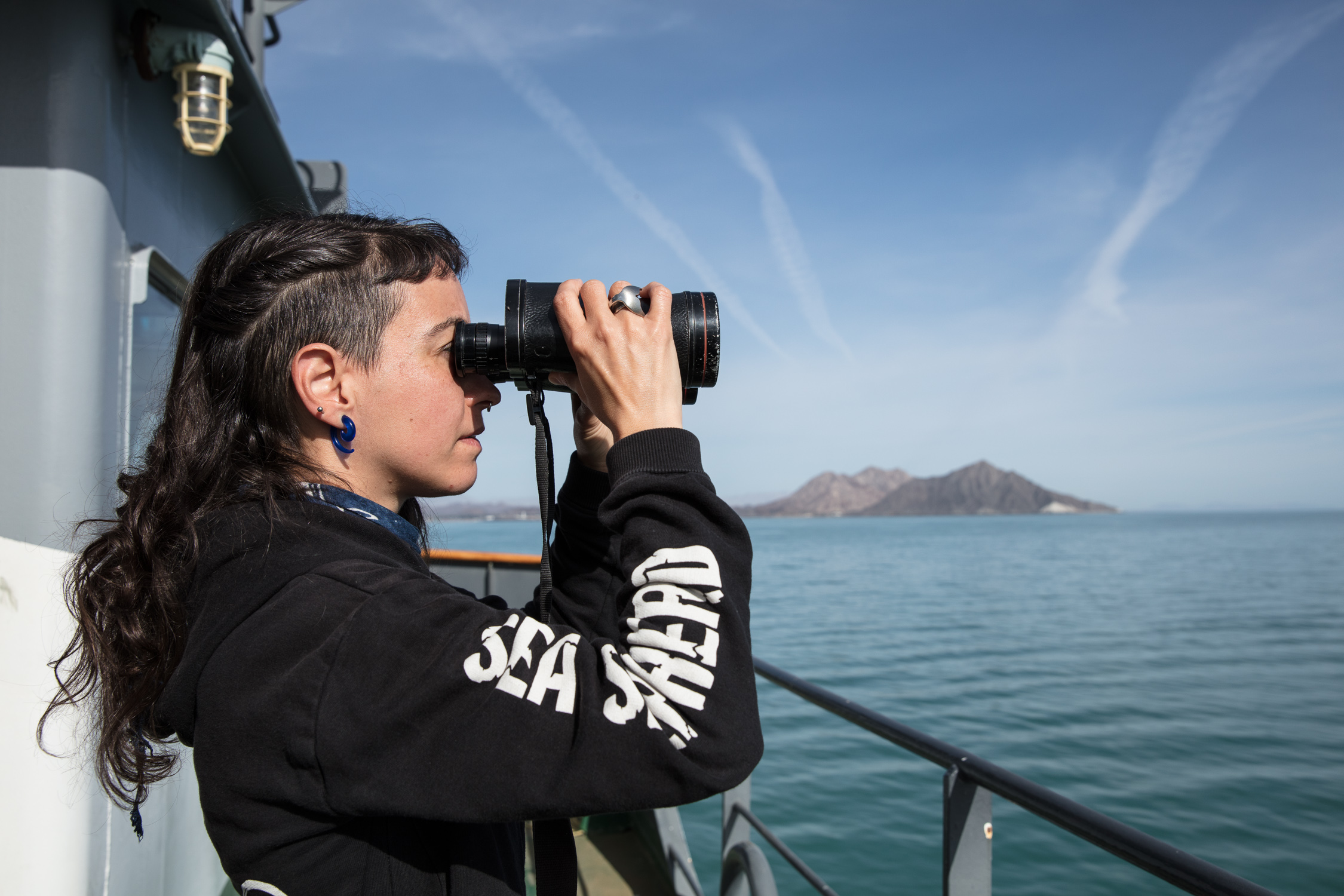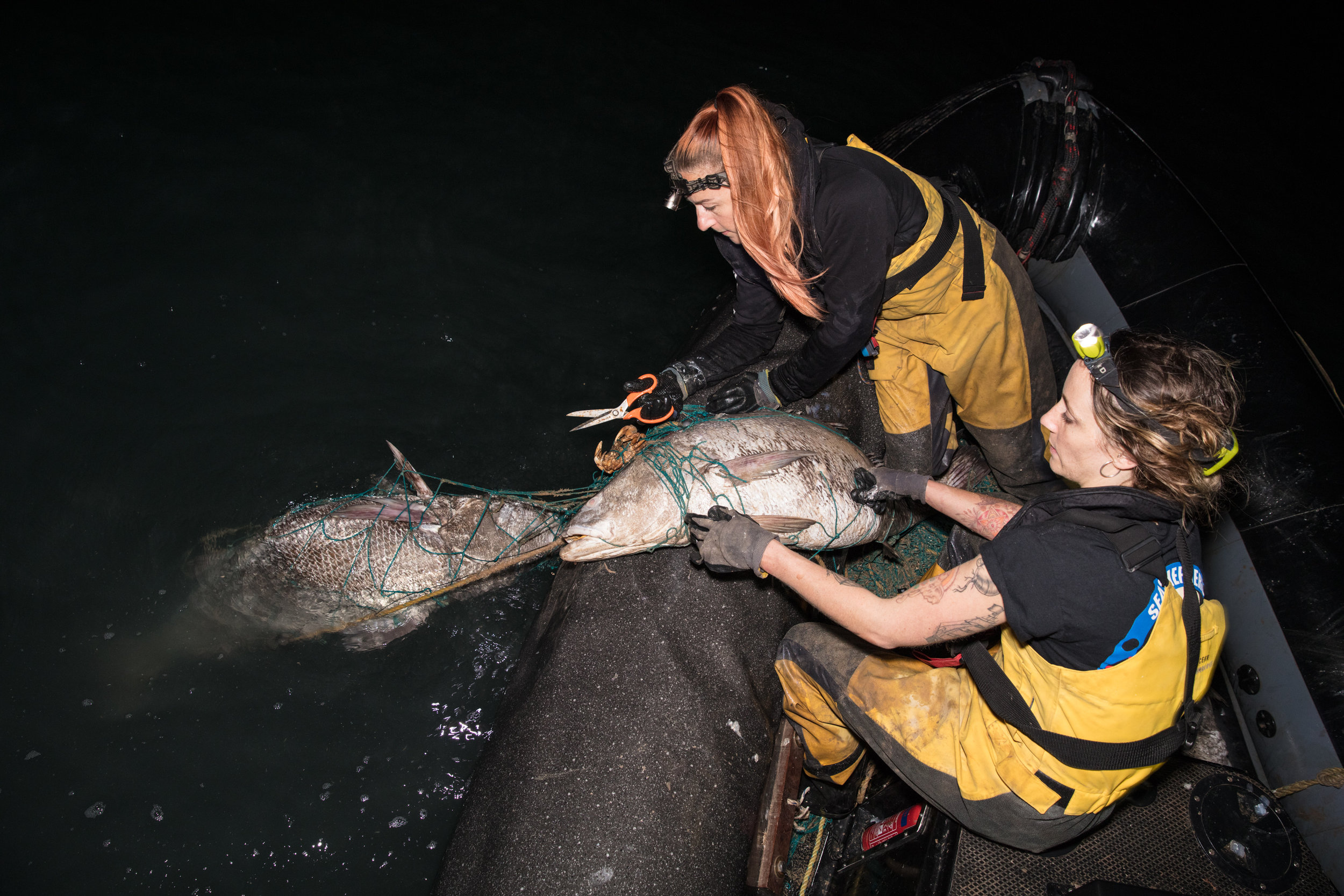Vanishing Vaquita
Stay Wild
A View from the Edge of Extinction
Photos and Story by Corey Arnold // coreyfishes.com
Last winter I traveled to Mexico’s Gulf of California, where fishermen illegally gillnet the totoaba sea bass, a 4–5 foot long ancient-looking fish whose valuable swimmer bladder is prized in China. Deployed without markers under the cover of darkness, these nets accidentally ensnare and drown an adorable tiny porpoise nearing extinction called the vaquita, of which there are none in captivity and only 20 or so left in the sea. Within a few years, the vaquita will likely be the next cetacean to disappear from Earth. While I didn’t get pictures of the porpoise (very few have seen them in the wild), I photographed the anti-poaching operations aboard the MV Sam Simon, a Sea Shepherd ship deployed to drag up illegal nets and hand over evidence of poaching to the Mexican Navy. It’s a complicated situation, as harvesting totoaba bladders is more lucrative than local jobs, or even drug trafficking. I don’t believe anyone thinks the vaquita can honestly be saved, but hopefully lessons can be learned by telling the story of the vaquita, and the disastrous effects that the illegal Chinese medicine trade has on endangered species worldwide.




